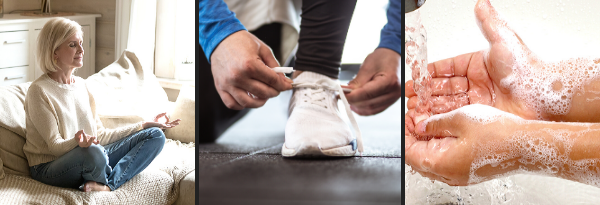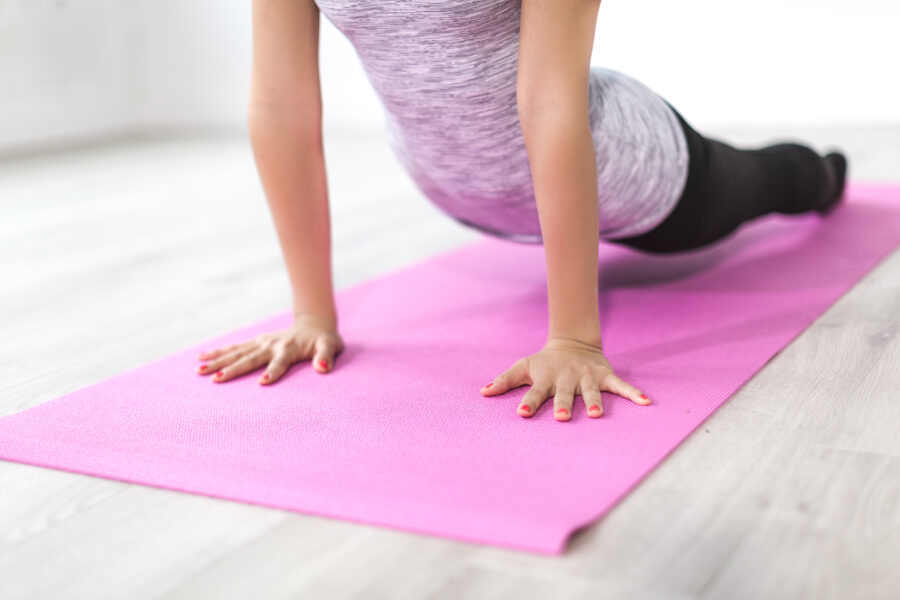Download more advice
For more information and answers to frequently asked questions about coronavirus. You can also contact healthinfo@panact.org if you have any specific questions, or call us on 0303 040 1770.
In this blog post you will find advice and practical recommendations on how to stay well whilst isolating from the coronavirus.

Following the government’s advice regarding coronavirus, and as the outbreak develops around the world, we are all having to spend more time indoors and avoiding social contact.
If you have pancreatic cancer or have previously been treated for the disease and this involved the removal of your spleen, you are considered at higher risk of the Coronavirus. You may also be at increased risk due to age or other medical conditions. You may be shielding from others and not leaving the house at all.
Alternatively, you may be following advice for social distancing. This involves staying away from friends, family, leisure activities and work as much as possible and travelling only if it’s essential. Spending far more time at home and alone can feel daunting and impact on mental health and wellbeing.
Self-isolation due to coronavirus may go on for several weeks or months. It is important to look after your mental as well as physical health during this time. The most important thing you can do is be kind to yourself, we recommend the following steps to look after your physical and mental health whether you are alone or isolated with family.
Getting up at a similar time every morning, having a shower and getting dressed is a simple thing that can make a big difference to your wellbeing. You don’t need to be strict with yourself but ensuring that give yourself some structure will help you to stay productive and time may seem to pass faster. This may be as simple as ensuring you get up and go to bed at your regular time.
Sitting down all day is bad for both your physical and mental health. Keep an eye on the time and get up to walk around at least once an hour.
If you are able to, getting outside is the best way of staying active. Whether that’s a walk away from other people or time in the garden. If, however, you are advised to or unable to get outside at all, try home workouts or yoga.
There are workouts online to suit anyone’s fitness level and keeping active releases endorphins that improve your mood as well as keeping you feeling physically fit. You don’t need to work too hard or for too long, 20 minutes of exercise or a yoga session every day can be effective.

It can be tempting to snack more or graze throughout the day. However, snacking throughout the day when you are moving around less may make you feel worse.
Try to eat regular balanced meals to keep your blood sugar stable and improve your mood. Drink plenty of fluids and consider your water intake as you may not remember to drink as much when your routine changes.
If you cannot go out to food shop or collect medication, ask family, friends or neighbours to help or consider online shopping. It is also important that you continue to take your medication as normal and monitor signs of malabsorption or blood sugars if necessary.
While you may not be able to meet family and friends face to face, keeping in touch will be a big lift to your mood. Speak over the phone or try using face time, skype or another way of talking to people where you can see them and feel more connected. You can use group chats to stay in contact with multiple people and you might want to schedule time to do this that you would normally use to meet them for coffee or dinner.
Alternatively, if you are with family, who it would be impractical or not possible to entirely isolate from, make sure you get some time alone to take a break.
If you are becoming anxious or overwhelmed and feel able to, ask the people you care about how they feel and be honest in return. If you would rather, you can speak to professionals online, over the phone or often via text message.
If you have a prolonged period of time in isolation whether due to social distancing or shielding, it may be the perfect time to try something new, learn a skill or language to keep you busy. Try to limit your time in front of screens and strike a balance with other hobbies. Podcasts, reading, cooking or baking something new, DIY or puzzles are all recommended to break up screen time and keep your mind active.
If you are feeling anxious about coronavirus and find yourself checking the news often or compulsively, try and take a break. Constantly checking the news and reading updates can feel overwhelming, prioritise taking care of yourself and loved ones for a while and come back to the news when you feel ready.
There is a great deal of uncertainty around coronavirus, how long measures to prevent the virus spreading will continue and whether isolation will become stricter. The best thing you can do in this situation is be kind to yourself, do what you need to do to relax and look after yourself.
You can contact healthinfo@panact.org if you have any specific questions, or call us on 0303 040 1770.